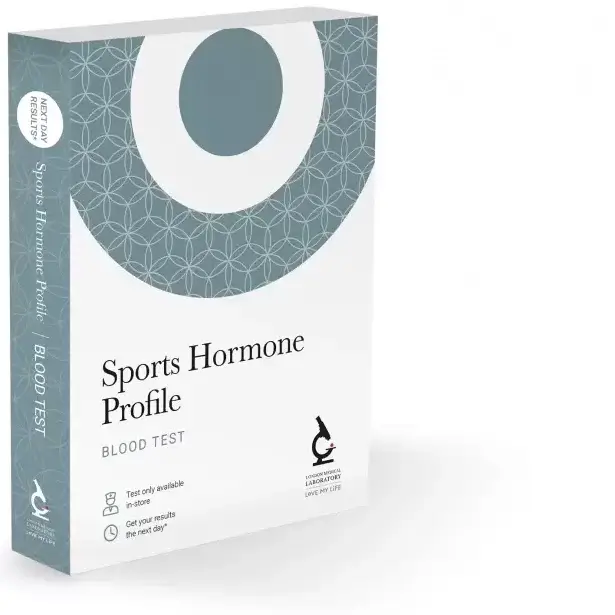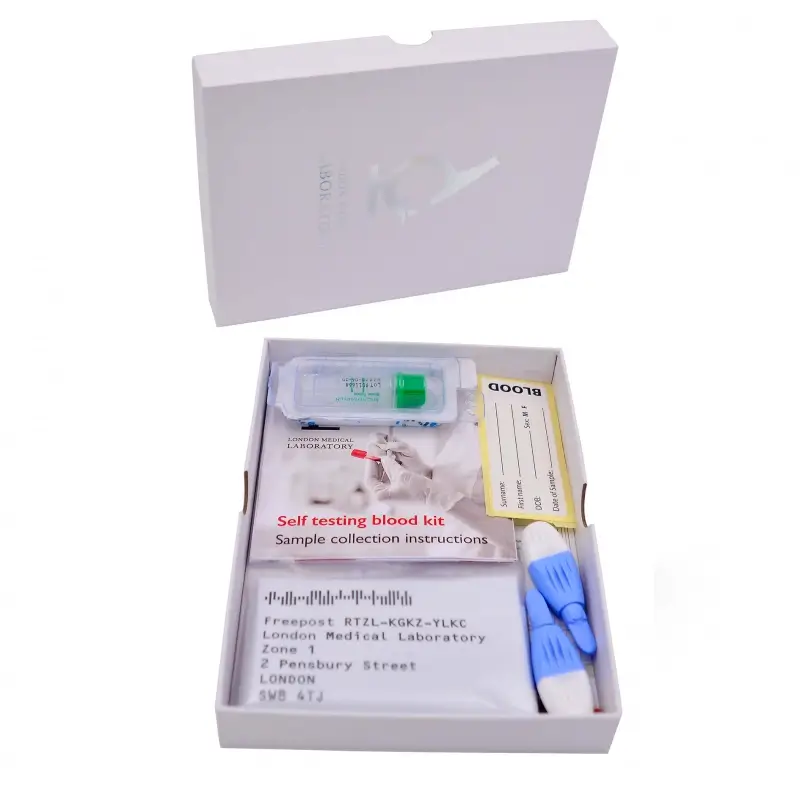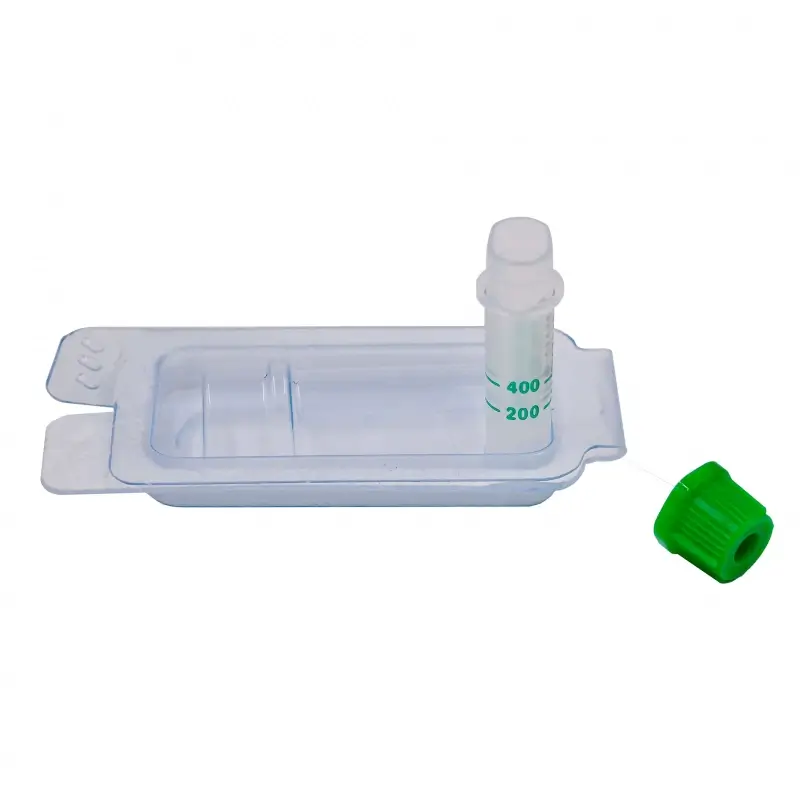
Sports Hormone Profile
Understanding your sports hormone profile
Amiry & Gilbride Pharmacy has collaborated with London Medical Laboratory to offer this comprehensive test, which evaluates key hormones that may be impacted by sports performance or supplement use.
How is this test conducted?
A blood test remains one of the most efficient methods for detecting underlying health issues or monitoring ongoing conditions. Whether you’re managing an existing condition or simply curious about your health status, a blood test offers a quick, cost-effective, and accessible way to take control of your wellbeing. Our in-store testing service is designed to be stress-free, convenient, and efficient. You can expect results in approximately 5 to 7 days.
It’s essential to keep in mind that while blood tests provide valuable information, they should not replace medical advice. Always consult with a healthcare professional if you experience any symptoms or before starting any treatment.


What does the test cover?
Blood cells (1 Biomarker)
A full blood count (FBC) evaluates the overall condition of your health by checking different types of blood cells, including red blood cells, white blood cells, and platelets. This test is crucial for identifying a variety of conditions such as infections, anaemia, and certain blood cancers. Please note that this test must be conducted in-store and cannot be performed with a finger-prick sample.
Full blood count
A full blood count provides essential details about the components of your blood. Red blood cells transport oxygen, white blood cells protect against infection, and platelets help with blood clotting. This test is often used to screen for infections, anaemia, and other disorders that can impact these cells.
Hormones (9 Biomarkers)
Hormones play a pivotal role in regulating processes like metabolism, growth, and reproduction. Imbalances in hormone levels can lead to a variety of health concerns.
Oestradiol
Oestradiol is a form of oestrogen, the primary hormone in non-pregnant women. It is instrumental in developing female physical traits and reproductive health. Oestradiol levels can help assess ovarian function, diagnose puberty-related issues in girls, and monitor hormone therapy in menopausal women.
Follicular stimulating hormone (FSH)
FSH is crucial for reproduction, controlling the development of eggs in women and sperm production in men. This hormone is often tested alongside others like testosterone and progesterone to investigate fertility concerns and pituitary disorders in both genders.
Luteinizing hormone (LH)
LH plays an important role in reproductive health by regulating the menstrual cycle in women and testosterone production in men. It is frequently tested to diagnose reproductive health issues such as ovulation problems or testosterone deficiencies.
Testosterone
This steroid hormone is produced mainly by the testes in men, but also by the adrenal glands in both sexes. Testosterone is responsible for male sexual development and muscle maintenance, and small amounts are present in women. A testosterone test can help diagnose conditions like infertility and erectile dysfunction.
Prolactin
Produced in the pituitary gland, prolactin’s primary function is to stimulate milk production during pregnancy and after childbirth. It can also be measured to diagnose menstrual irregularities, infertility, and erectile dysfunction.
Sex hormone binding globulin (SHBG)
SHBG is a protein produced by the liver that transports sex hormones like testosterone and oestradiol through the bloodstream. This test is primarily used to diagnose testosterone deficiency in men and monitor hormone levels in women.
Free testosterone calculation
Free testosterone, the portion of testosterone not bound to proteins like SHBG, is critical for assessing conditions like infertility and erectile dysfunction. This calculation provides a more accurate representation of testosterone availability in the body.
DHEA-sulphate
DHEA-Sulphate is produced mainly in the adrenal glands, with smaller amounts coming from the testes and ovaries. It plays a role in controlling vital functions like blood pressure and heart rate and is crucial in producing sex hormones. This test helps detect adrenal gland disorders and tumours.
Free androgen index
The free androgen index measures levels of androgens, which include testosterone. Androgens play a role in reproductive health and the development of sex organs. This test is used to diagnose conditions like male infertility and hormone imbalances in women.
Liver function (8 Biomarkers)
The liver is responsible for crucial body functions, including detoxifying the blood, regulating sugar levels, and aiding in digestion. Maintaining liver health is essential for overall wellbeing.
Albumin
Albumin is a protein produced in the liver that helps maintain fluid balance and transport substances like hormones and vitamins throughout the body. This test can detect liver and kidney diseases.
Globulin
Globulin, another liver-produced protein, is essential for blood clotting and fighting infections. Testing globulin levels can help diagnose liver disease, autoimmune disorders, and kidney problems.
Total protein
Total protein measures the combined levels of albumin and globulin in your blood. Abnormal levels can indicate liver or kidney issues, malnutrition, or inflammation.
Alkaline phosphatase (ALP)
ALP is an enzyme found primarily in the liver and bones. Elevated levels can suggest liver disease or bone disorders.
Alanine transaminase (ALT)
ALT is an enzyme primarily found in the liver, though small amounts exist in the heart and kidneys. When liver cells are damaged, ALT is released into the bloodstream, making it a useful indicator of liver health.
Aspartate aminotransferase (AST)
AST is another enzyme involved in liver function. Elevated AST levels can point to liver damage or diseases affecting the liver, heart, or muscles.
Gamma glutamyl transferase (GGT)
GGT helps in metabolising drugs and toxins in the liver. Its levels can be used to detect liver disease, particularly in cases involving bile duct issues or alcohol consumption.
Total bilirubin
Bilirubin is produced when the liver breaks down red blood cells. A total bilirubin test can help diagnose liver conditions and certain types of anaemia.
Thyroid (5 Biomarkers)
Thyroid disorders are relatively common and can cause symptoms such as fatigue, weight changes, and mood fluctuations. Many cases go undiagnosed, making thyroid testing crucial for overall health.
Thyroid stimulating hormone (TSH)
TSH, produced by the pituitary gland, prompts the thyroid to release hormones that regulate metabolism and energy levels. Testing TSH levels helps diagnose thyroid diseases such as hypothyroidism and hyperthyroidism.
Free T4 (thyroxine)
Free T4 is a hormone that helps regulate metabolism and growth. Testing T4 levels can help diagnose thyroid conditions and infertility issues in women. It is often tested alongside TSH and Free T3.
Free T3 (triiodothyronine)
Free T3 is another crucial hormone produced by the thyroid gland, which works alongside T4 to regulate metabolism, growth, and body temperature. Like Free T4, Free T3 is tested to diagnose conditions such as hyperthyroidism or hypothyroidism. Testing these hormones together provides a more complete picture of thyroid function.
Reverse T3
Reverse T3 is a by-product of T4 and is generally inactive. However, testing Reverse T3 can be important in cases where other thyroid markers are abnormal. It helps in evaluating whether the body is converting T4 into active T3 properly. This test can assist in diagnosing certain thyroid conditions, particularly in individuals with persistent symptoms despite normal
T4 and T3 levels.
Thyroid peroxidase antibodies (TPOAb)
Thyroid Peroxidase Antibodies (TPOAb) are produced when the body’s immune system mistakenly attacks the thyroid gland. Testing for TPOAb is crucial for diagnosing autoimmune thyroid disorders, such as Hashimoto’s thyroiditis or Graves’ disease. High levels of TPOAb may indicate thyroid inflammation or dysfunction, even before symptoms become apparent.
The benefits of the sports hormone profile
The sports hormone profile offers a comprehensive analysis of the key hormones and biomarkers involved in maintaining physical health, particularly for those engaging in regular sports activities. By understanding your hormone levels, you can better assess how your body is functioning and identify any imbalances that might affect your performance, recovery, or overall wellbeing.
This profile is especially beneficial for athletes and individuals who use supplements or engage in rigorous physical activity, as it provides insights into how the body responds to stress and physical exertion. Monitoring these markers can help optimise training routines and ensure that any imbalances are addressed promptly.
Why regular hormone testing matters
Hormones play a critical role in numerous body functions, from energy production to muscle growth and recovery. Imbalances can lead to fatigue, poor performance, or even more serious health conditions. Regular testing allows for early detection of potential issues, enabling individuals to make informed decisions about their health and fitness regimes.
This type of testing is also invaluable for those who are undergoing hormone replacement therapy or who may be considering it. Tracking hormone levels over time ensures that any interventions are effective and that side effects are minimised.
Who should consider a sports hormone profile?
The sports hormone profile is suitable for anyone interested in understanding their hormonal health, but it is particularly useful for:
. Athletes or fitness enthusiasts who want to optimise their training and performance
. Individuals experiencing symptoms like fatigue, weight changes, or mood swings that could be linked to hormonal imbalances
. People undergoing hormone replacement therapy or considering it
. Those concerned about their reproductive health or fertility
In addition, this profile can provide valuable insights for individuals who may be experiencing symptoms of thyroid or adrenal disorders, as well as those looking to monitor their liver function and overall metabolic health.
The sports hormone profile is a highly valuable tool for assessing overall health, particularly for those engaged in regular physical activity. By measuring key biomarkers across multiple systems – hormones, liver function, thyroid function, and more – this comprehensive test provides a clear picture of your body’s internal balance.
Regular testing can help identify any issues early on, allowing individuals to take action and make adjustments to their diet, lifestyle, or training routines as needed. Whether you’re an athlete, fitness enthusiast, or someone simply looking to improve your wellbeing, understanding your hormonal health is a critical component of optimising your performance and quality of life.



